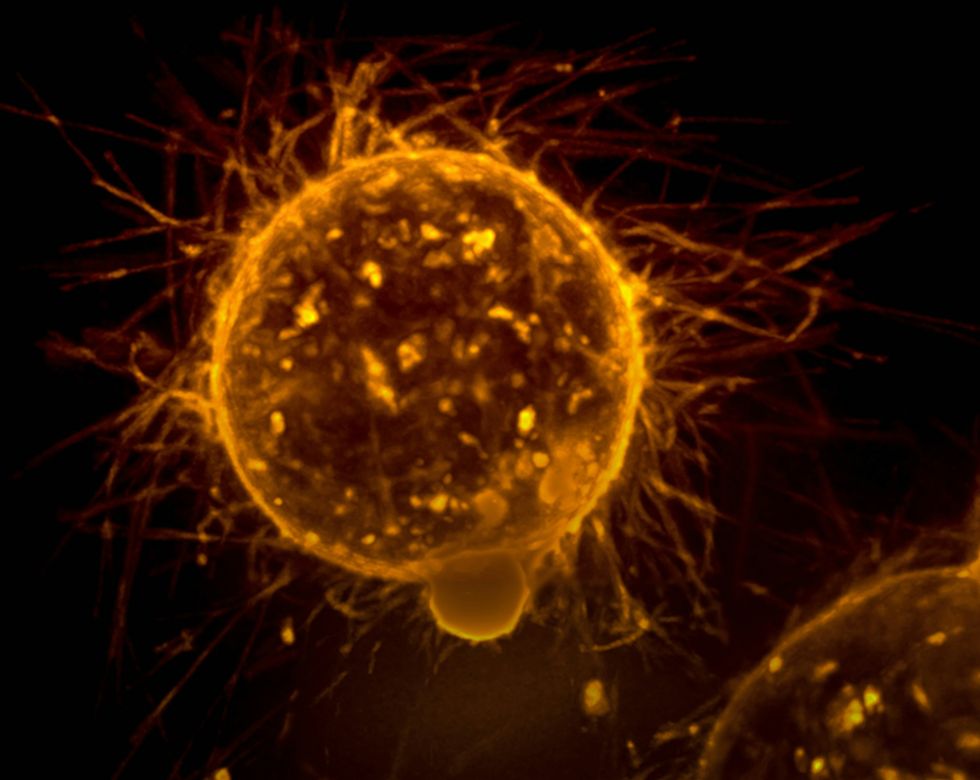Can Cannabis-Assisted Psychotherapy Transform Mental Health Care? Discover the Healing Potential!
Weed therapy involves using cannabis to treat mental health issues like PTSD, anxiety, and chronic pain. We’ll explore its benefits, how it’s being integrated into treatments, and the latest research findings. Discover what makes weed therapy a promising option for mental health care.
Understanding Weed Therapy
Medical marijuana is commonly referred to as medical cannabis. It is obtained from the Cannabis sativa plant. This plant has been used for therapeutic purposes for millennia, with its users often citing benefits in alleviating psychiatric symptoms. The cannabis plant contains various cannabinoids, such as THC and CBD, which interact with receptors in the brain, influencing mood, behavior, and thoughts. This interaction forms the basis of cannabis’s therapeutic potential. Additionally, many choose to plant cannabis sativa for its various benefits.
The endocannabinoid system plays a crucial role in regulating various physiological processes, including emotional states and stress responses. This system’s involvement in mental health disorders suggests that targeting it could offer an alternative treatment approach. Clinical evidence supports that cannabis, when used appropriately, can be an effective treatment for several mental health conditions.
Despite its potential, cannabis use in mental health treatment is often met with skepticism. Concerns arise due to its potential to disrupt insight, cognition, and executive decision-making during psychotherapy. However, recent studies indicate that cannabis and psychotherapy can act synergistically, enhancing each other’s effects. This synergy is particularly notable in therapies that focus on emotional and body states, where cannabis can support therapeutic processing and progress.
Medical cannabis is not just about alleviating symptoms; it’s about enhancing the overall therapeutic process. When combined with professional guidance, the therapeutic effects of cannabis can be profound. This guide will explore various aspects of weed therapy, starting with Cannabis-Assisted Psychotherapy.
Next, we delve deeper into Cannabis-Assisted Psychotherapy, exploring how this innovative approach integrates cannabis use with trauma-focused therapy techniques to facilitate emotional healing.
Cannabis-Assisted Psychotherapy (CAP)
Cannabis-Assisted Psychotherapy (CAP) is a novel approach that integrates the therapeutic use of cannabis with trauma-focused therapy techniques. In CAP, cannabis is used as a tool to facilitate deeper therapeutic processes rather than being seen as a standalone treatment. This method allows individuals to explore emotions and somatic sensations more profoundly due to the relaxing effect cannabis has on defense mechanisms.
CAP sessions typically last between 2.5 to 3 hours and are often followed by a reflection period for integration. The frequency of these sessions is usually twice monthly over a period of five months. The protocols for CAP can vary, with sessions offered both in-person and online, using different methodologies tailored to the client’s needs.
During therapy, cannabis helps disrupt typical thought patterns, enabling access to unconscious memories and repressed emotions. This disruption allows for a deeper exploration of the subconscious, which is not the focus of traditional rational, linear insight or verbal storytelling. Instead, CAP provides access to subconscious areas of the mind, facilitating profound emotional processing.
One of the key benefits of CAP is its ability to help the autonomic nervous system process strong emotions and revelations that arise from psychedelic experiences. This process can lead to significant therapeutic progress, making CAP a valuable tool in mental health treatment. Resources like the Psychedelic Somatic Institute provide valuable information on Cannabis-Assisted Therapy.
Next, we will explore how cannabis, particularly within the framework of CAP, can help manage symptoms and improve the quality of life for those suffering from PTSD.
Therapeutic Effects on PTSD
Post-traumatic stress disorder (PTSD) is a condition classified under trauma- and stressor-related disorders according to the DSM-V. The therapeutic efficacy of cannabinoids in treating posttraumatic stress disorder has been an area of growing interest, with some studies showing significant improvements in symptoms when using medical cannabis. For veterans with PTSD, higher availability of cannabinoid type 1 (CB1) receptors may temporarily respond to short-term cannabis use, providing symptom relief.
Cannabis helps manage PTSD symptoms by allowing patients to forget painful experiences. Improvements noted with nabilone treatment in PTSD patients include reduced nightmares, better global clinical state, and enhanced general well-being. Cannabis-assisted psychotherapy (CAP) has shown a reduction in pathological dissociation and increased psychosocial functioning in PTSD patients.
Patients have experienced robust improvements in dissociative symptoms and did not meet criteria for Dissociative PTSD after participating in CAP. CAP also leads to a robust and sustained improvement in emotional processing for patients with PTSD. These findings highlight the therapeutic potential of cannabis in treating PTSD, making it a valuable tool for mental health professionals.
Randomized controlled trials are being conducted to gather further evidence on the efficacy of marijuana and cannabinoids for PTSD treatment. Although limited evidence of effectiveness has been reported from trials investigating nabilone for PTSD symptoms, the overall therapeutic potential remains promising.
Next, we will explore how cannabis can provide significant relief for individuals suffering from chronic pain conditions.
Chronic Pain Management
 Therapeutic Benefits of Weed Therapy in Mental Health Treatment – The Bluntness
Therapeutic Benefits of Weed Therapy in Mental Health Treatment – The Bluntness
Photo by Jorge Franganillo on Unsplash
Cannabis is widely recognized as an effective treatment for chronic pain, offering clinically significant reductions in pain symptoms compared to traditional medications. Approximately 87 percent of patients seek medical marijuana primarily for pain relief, indicating its predominant role in chronic pain management. This high demand underscores the importance of cannabis in addressing chronic pain.
Cannabis serves as a safe alternative to opioid medications, effectively reducing the risks of dependency and fatal overdoses. Many patients have reported a preference for cannabis over opioids, citing fewer and more tolerable side effects. This preference is particularly important given the current opioid crisis and the need for safer pain management options.
Healthcare professionals acknowledge the benefits of medicinal cannabis but remain concerned about addiction and abuse. Nevertheless, cannabinoid treatments have shown significant efficacy in alleviating chronic neuropathic pain, often experienced by patients with conditions like Multiple Sclerosis. Cannabis has also demonstrated significant efficacy in managing pain for cancer patients who may not tolerate traditional pain medications.
Next, we will discuss how cannabis can be a double-edged sword in managing anxiety and depression, depending on dosage and individual response.
Addressing Anxiety and Depression
The use of cannabis in managing anxiety has shown mixed results. While some studies indicate potential benefits, others raise concerns about increased anxiety at higher dosages. Low doses of THC have been found to reduce subjective anxiety, whereas high doses can induce anxiety and panic, highlighting the drug’s dose-dependent effects. This nuanced response underscores the importance of careful dosing and monitoring.
Recent studies have indicated that patients with anxiety disorders often report decreased use of traditional anti-anxiety medications after substituting them with medical cannabis. This shift suggests that cannabis can be an effective alternative for some patients. Additionally, there is evidence of a link between deficiencies in the endocannabinoid system and the onset of depression, suggesting cannabinoids might have potential antidepressant effects.
CBD, a non-psychoactive cannabinoid, may have potential as an anti-depressant, although THC products show mixed results. Cannabis containing higher CBD levels may be more effective for anxiety reduction, which is crucial for patients undergoing cancer treatment. Limited evidence of improvement in anxiety symptoms has been observed in patients with social anxiety disorder treated with cannabidiol.
The endocannabinoid system plays a significant role in mood regulation, impacting both anxiety and depressive symptoms. This connection highlights the therapeutic potential of cannabis in addressing these common mental health conditions.
Next, we will explore how cannabis-based therapies can help manage symptoms for MS patients.
Weed Therapy for Multiple Sclerosis

Cannabis-based therapies are frequently sought after by multiple sclerosis (MS) patients for symptom management. Some evidence suggests that cannabinoid therapies help with spasticity in MS patients. Nabiximols, a cannabis extract, is used to manage spasticity in MS patients who have not responded to other treatments. This specific use highlights the targeted benefits of cannabis for MS symptoms.
A significant portion of MS patients have reported that cannabis helps them manage symptoms related to muscle stiffness and spasms. The ability of cannabinoids to modulate immune responses may also be beneficial in managing MS symptoms. This modulation can help reduce the severity of symptoms and improve the quality of life for MS patients.
Cannabinoids can decrease muscle spasms, easing spasticity in certain conditions. Oral cannabinoids have been shown to be effective for patient-reported spasticity. These improvements in patient-reported spasticity symptoms underscore the therapeutic potential of cannabis for individuals with multiple sclerosis.
Transitioning to cannabis use in treating cancer-related symptoms, we will discuss how cannabis can help alleviate the side effects of cancer treatments.
Cannabis Use in Treating Cancer-Related Symptoms
 Cannabis Use in Treating Cancer-Related Symptoms – The Bluntness
Cannabis Use in Treating Cancer-Related Symptoms – The Bluntness
Photo by National Cancer Institute on Unsplash
Cannabis has been recognized for its ability to alleviate chemotherapy-induced nausea and vomiting, cancer-related pain, and anorexia. These therapeutic effects make cannabis a valuable adjunct treatment option for cancer patients. Cannabis products have been shown to be effective in managing chemotherapy-induced nausea and vomiting, providing significant relief for patients undergoing cancer treatment.
Approximately 73% of patients report increased appetite when using cannabis extracts, helping to combat anorexia associated with cancer. This increase in appetite can be crucial for maintaining nutritional intake and overall health during cancer treatment. Dronabinol, a cannabis-derived medication, is specifically indicated for the treatment of nausea and vomiting from cancer treatment and associated anorexia.
The use of cannabis for cancer-related symptoms highlights its potential as a multi-faceted therapeutic tool. By providing pain relief from cancer pain, reducing nausea, and increasing appetite, cannabis can significantly improve the quality of life for cancer patients. Next, we will discuss how healthcare professionals can guide patients in using medicinal cannabis effectively.
The Role of Healthcare Professionals
Healthcare professionals play a crucial role in guiding patients on the use of medical marijuana. They can suggest types and doses of medical marijuana to patients, helping them find the most effective treatment options. However, many professionals feel unprepared to address patient inquiries about medicinal cannabis due to insufficient formal training and knowledge.
Despite the general support for the use of medicinal cannabis in clinical practice, healthcare providers often lack confidence in their prescribing practices. This lack of confidence underscores the need for better education and training regarding medicinal cannabis. By improving their knowledge, healthcare professionals can better support their patients and enhance treatment outcomes.
It’s important to note that healthcare professionals can only suggest medical marijuana; they cannot prescribe it directly. This limitation highlights the need for patients to understand the legal considerations and state laws governing the use of medical marijuana.
Next, we will explore how varying state regulations impact the use of medicinal cannabis.
Legal Considerations and State Laws
Legal barriers and varying state regulations significantly impact healthcare professionals’ ability to prescribe and recommend medicinal cannabis. Each state in the U.S. has its own regulations regarding the cultivation and use of medical marijuana. Some states have decriminalized marijuana, while others have not legalized it for any purpose. This patchwork of laws can be confusing for both patients and healthcare providers.
Local jurisdictions can impose stricter regulations than state laws, adding another layer of complexity. Patients often need to obtain a medical marijuana card to legally use cannabis in many states. This card typically requires a recommendation from a healthcare professional and proof of a qualifying medical condition. Employment laws regarding medical marijuana use can also vary significantly from state to state, affecting patients’ job security and rights.
Given these complexities, it is essential to check your state’s laws before considering medical marijuana. Understanding the legal landscape can help ensure that patients use cannabis legally and safely.
Next, we will discuss the possible negative consequences of cannabis use and the importance of monitoring its effects.
Potential Risks and Adverse Events
While cannabis has many therapeutic benefits, it is not without risks. Serious adverse events associated with cannabinoids typically include relapse of multiple sclerosis, vomiting, and urinary tract infections. Respiratory, gastrointestinal, and nervous system disorders are the most frequently reported categories of serious adverse events among cannabinoid users. These risks underscore the need for careful monitoring and management.
The incidence of nonserious adverse events is 1.86 times higher in cannabinoid users compared to control groups. The majority of reported adverse events from medical cannabinoid use are nonserious, with dizziness being the most common. Short-term cannabinoid therapy may increase the risk of nonserious adverse events, although serious adverse events do not show a significant increase.
High-THC cannabis strains can increase feelings of anxiety and paranoia, particularly in individuals with a history of mental health issues. Research indicates that cannabis can negatively impact cognitive functions and may exacerbate symptoms of anxiety and depression. Long-term marijuana use can lead to tolerance, requiring individuals to consume more to achieve the same effects, complicating PTSD management.
While some individuals may temporarily feel relief from PTSD symptoms through marijuana use, it may worsen underlying anxiety and depression over time. Out of 321 studies evaluated for the safety of medical cannabinoids, only 31 were included due to their focus on medical rather than recreational use. These findings highlight the need for more extensive studies on the long-term risks and benefits of cannabis use.
Next, we will explore the current state of scientific research on cannabis for mental health treatment.
Research and Clinical Trials
Despite anecdotal evidence supporting the use of cannabis for mental health, controlled clinical trials are still needed to robustly assess its efficacy and safety. A 2019 review of 83 studies found no strong evidence supporting the use of cannabis for mental health treatments. This highlights the importance of rigorous scientific research to validate the therapeutic claims of cannabis.
Clinical trials are ongoing to assess the potential of cannabidiol in conditions like epilepsy and schizophrenia. These trials aim to provide a clearer understanding of how cannabinoids interact with the brain and their long-term effects on mental health. Continued research is essential to understand both the benefits and risks of cannabis as a treatment for mental health conditions.
The National Institute of Health is funding several studies to explore the therapeutic potential of cannabis. These studies aim to provide systematic reviews and meta-analyses to offer healthcare professionals evidence-based guidelines for cannabis use in clinical practice. The growing body of research is crucial for developing effective treatments and ensuring patient safety.
Healthcare professionals and patients alike need reliable information to make informed decisions about cannabis use. As more clinical trials and research studies are conducted, we can expect to see a clearer picture of the therapeutic potential and limitations of cannabis in mental health treatment.
Next, we will recap the key points discussed and provide an inspiring closing statement to encourage further exploration and discussion.
In summary, weed therapy offers a promising avenue for mental health treatment, with its roots in ancient medicinal practices and modern scientific exploration. From understanding the basics of medical marijuana and its components to exploring its application in various mental health conditions, we have covered a broad spectrum of information. Cannabis-Assisted Psychotherapy, in particular, stands out as a novel approach that enhances emotional healing and therapeutic processing.
The therapeutic effects of cannabis have shown potential in treating PTSD, chronic pain, anxiety, depression, multiple sclerosis, and cancer-related symptoms. However, it is crucial to navigate the legal landscape and be aware of potential risks and adverse events. Healthcare professionals play a vital role in guiding patients through the safe and effective use of medicinal cannabis.
As research and clinical trials continue to expand our understanding, the future of weed therapy in mental health treatment looks promising. We encourage readers to stay informed, consult with healthcare professionals, and consider the therapeutic potential of cannabis with an open mind. Together, we can pave the way for innovative and effective treatments that improve the quality of life for many.
Frequently Asked Questions
What is the role of the endocannabinoid system in mental health?
The endocannabinoid system plays a crucial role in regulating emotional states and stress responses, indicating its potential importance in mental health treatment. By targeting this system, therapies could better address various mental health issues.
How does Cannabis-Assisted Psychotherapy (CAP) differ from traditional therapy?
Cannabis-Assisted Psychotherapy (CAP) differs from traditional therapy by enabling access to subconscious areas for deeper emotional processing, rather than relying solely on rational insight and verbal storytelling. This approach allows for a unique therapeutic experience that can enhance personal exploration and healing.
What are the potential risks of using cannabis for mental health treatment?
Using cannabis for mental health treatment carries risks such as relapse of other medical conditions, adverse reactions like vomiting and dizziness, and potentially increased anxiety, particularly with high-THC strains. It’s essential to weigh these risks carefully before considering cannabis as a treatment option.
Can cannabis be used to treat PTSD effectively?
Cannabis can be effective in treating PTSD symptoms, as studies indicate it may help reduce nightmares and enhance overall well-being. However, results can vary, so it’s important to consult with a healthcare professional for personalized advice.
Are there ongoing clinical trials for cannabis use in mental health treatment?
Yes, there are ongoing clinical trials exploring the use of cannabinoids, including cannabidiol, for mental health conditions such as epilepsy and schizophrenia. This research is expanding our understanding of cannabis’s potential therapeutic roles.

